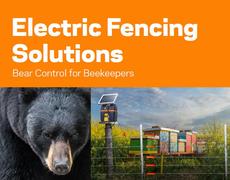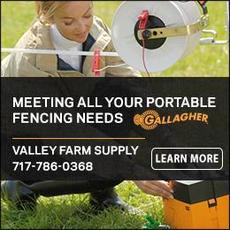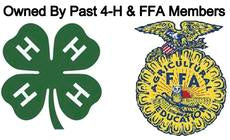When it comes time to fence your property to contain animals like horses, goats, cattle, and sheep, you’ll find yourself facing a number of difference fence types that you can choose from. While each fencing type offers different advantages and disadvantages, it’s important to consider the different needs of the types of animals that you will be using the fencing for. Different animals have different physical builds and different behavioral characteristics, so taking these into account will help you choose the right type of fence for each type of animal.
Horse Fencing
It seems that of all animals, horses are the most talented at injuring themselves, so safety should be a major priority when choosing the right type of fence for your horses. The horse is an active animal, and horses will run in their pastures, especially if they are kept in small herds. With their thin legs and quick reaction time, horses can easily end up in trouble if they are enclosed by a fence with limited visibility.
A fence that is used to enclose horses should be wide and easily visible to the horse when he is galloping. Horse fencing must be strong, such as wooden fencing, which is also highly visible, but fencing should also have some give to it to minimize injury if a horse runs into the fence (http://pubs.cas.psu.edu/freepubs/pdfs/ub037.pdf).
Electric fencing can be an ideal fencing when combined with the visibility of a vinyl top fence line or a wooden fence line. Using a “sight board” of solid, highly visible material can help avoid accidents and can deter horses from challenging a fence. Additionally, making sure that the fence is at least as high as the horse’s withers will help discourage jumping.
Barbed wire should absolutely be avoided when enclosing horses, since it is easy for a horse to become entangled. Once caught, barbed wire can shred a horse’s delicate skin and do serious damage. (http://www.horsechannel.com/horse-keeping/fencing-mistakes.aspx)
Goat Fencing
Selecting the right fence for enclosing goats proves a unique challenge due to the playful and curious nature of the animals. Goats chew, climb on, and dig under just about anything, so a fence must be strong enough, secure enough, and tall enough to keep them contained. Further, if you have different breeds of goats that grow to different sizes, you will need to make sure that the fencing you use is suitable for all of them.
Goats are known escape artists, and while a variety of fencing is available to keep them contained, electric fencing proves a popular choice. Electric fencing helps to keep predators out, while also keeping the goats in. To be effective, each strand of the electric fence must be carefully placed. Placing the strands too high will allow the goats to sneak under it, but placing the strands too low means the goats will step or jump over it. Using multi-strand electric fence, potentially combined with a wire net fence, is an effective barrier for goats (http://www.livingthecountrylife.com/buildings/fences/fencing-for-goats/).
Cattle Fencing
Cattle can be hard on fencing. They require strong fencing to keep them contained, but cattle also need large areas to roam, which means that the fencing must be cost-effective as well. When fencing cattle, the fence needs to be at least 60 inches tall.
Barbed wire and woven wire make popular cattle fencing due to their relative low cost and ease of installation. However, those fencing types require regular maintenance (https://utextension.tennessee.edu/publications/Documents/PB1541.pdf). High tensile electric fencing is also an excellent cattle fencing. The electric fence should consist of at least four strands, and such a fence costs less than a four-strand barbed wire or woven wire fence.
Sheep Fencing
While sheep don’t challenge fencing with the strength that a cow or horse can exert, it’s important to remember that sheep fencing must protect the sheep from predators. Fences should be at least 39 inches high to discourage climbing, though the exact height of the fence that you will need will depend on the height of the sheep that you are containing. Remember, too, that if you raise horned sheep, the fencing’s design should prevent the sheep from putting their heads through the fencing and getting stuck.
Woven wire fencing paired with a strand of electric wire fencing provides excellent containment for sheep while also preventing predators from breaking into the pasture. Since coyotes can fit through areas as small as 4 ½”, it is vital to construct sheep fencing carefully (http://pubs.ext.vt.edu/442/442-131/442-131.html).
When choosing the right fence for your animals, be sure to think about the animals’ physical traits, behaviors, and needs.





